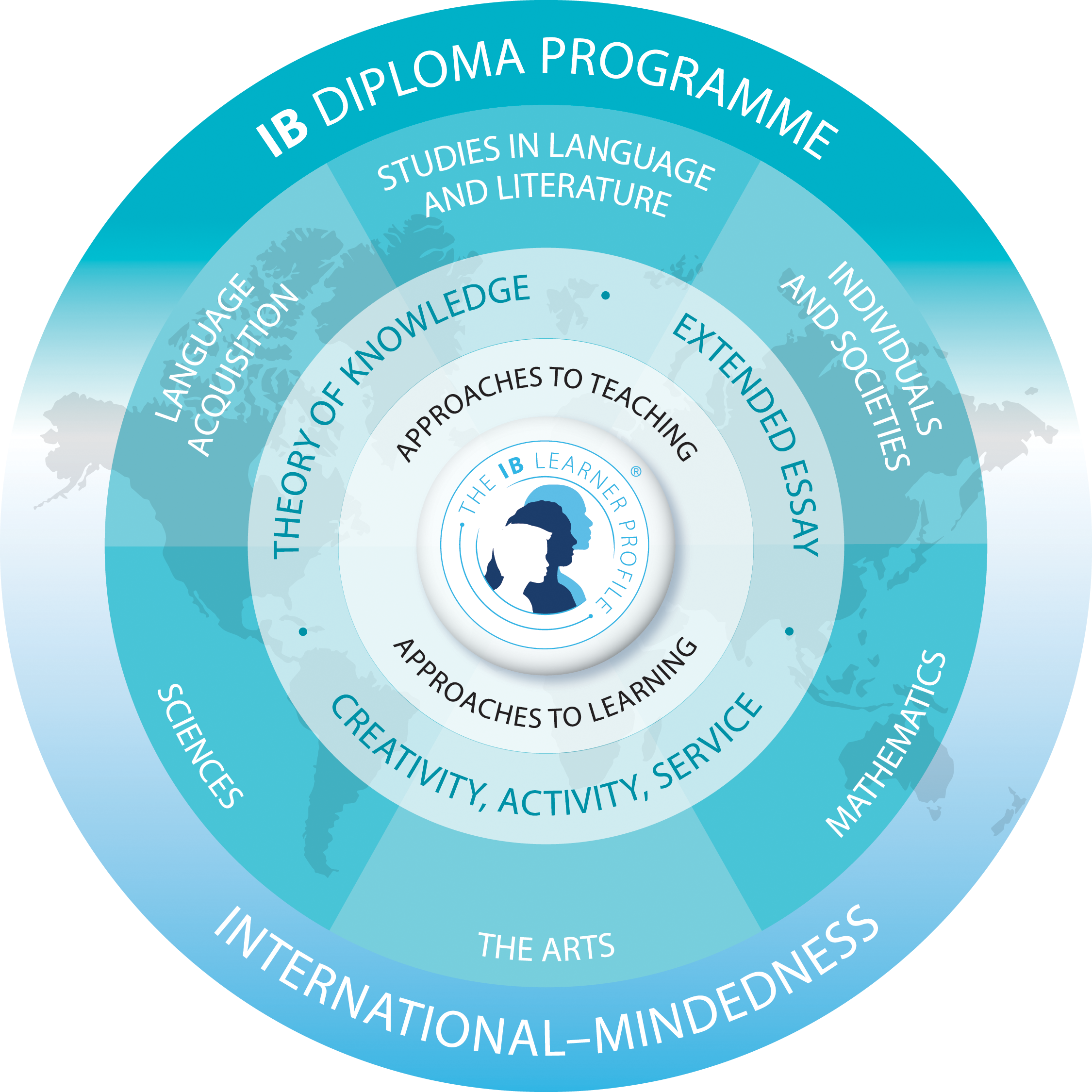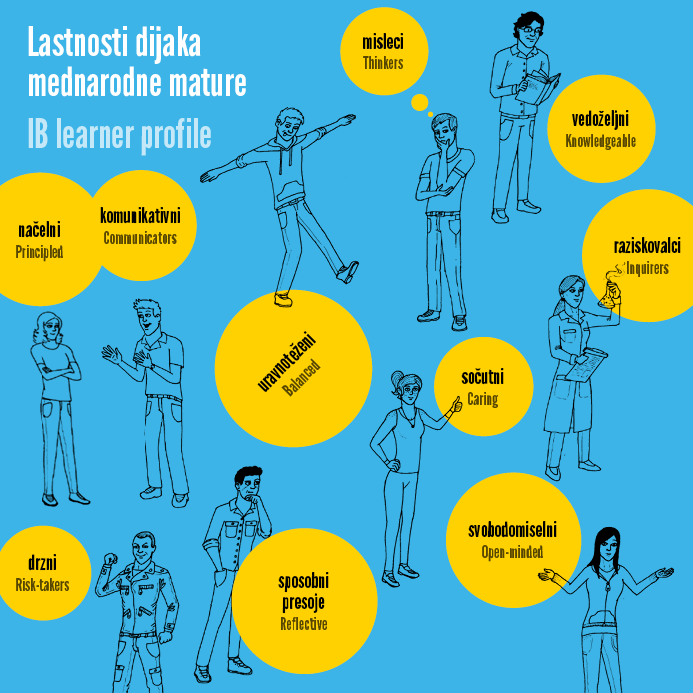International Baccalaureate Diploma Programme
The value of knowledge is in sharing 
Preparing students for the challenges of tomorrow
The aim of the International Baccalaureate Diploma Programme at Gimnazija Kranj is to educate young people in academic excellence and open-mindedness. Gimnazija Kranj provides a solid, well-rounded education and aims to form caring, ambitious and positive young people who share a global perspective and hold a responsibility for humanity and for planet Earth. As educators, we help students to develop their potential and encourage them to live up to their ideals and find their way in life.
Znanje deliti pomeni svet razsvetliti
Dijake pripravljamo na izzive prihodnosti
Cilja programa mednarodna matura na Gimnaziji Kranj sta akademska odličnost in odprtost. Mednarodna matura zagotavlja trdno, vsestransko in poglobljeno izobrazbo ter oblikuje skrbne, ambiciozne in pozitivno misleče mlade ljudi s svetovljanskim pogledom na svet, ki se zavedajo, da so odgovorni za sočloveka in planet, na katerem živijo. Učitelji pomagamo dijakom razviti njihov potencial in jih spodbujamo, da gojijo svoje ideale ter najdejo svojo pot v življenju.
The International Baccalaureate Diploma Programme (IBDP) was started in the 1960s by a group of international educators in Geneva, Switzerland. With the goal of transcending political borders; providing a “general education with specialization;” and creating a universally recognized diploma, the first United World College, Atlantic College, was founded. Atlantic College served as a model for the framework of the IBDP, and soon thereafter, other United World Colleges were founded all over the world - with the IBDP as their central curriculum - and the programme began being adopted by high schools as well. Harlan Hanson, one of the IBDP’s founders, stated that the goal of the IB Diploma was to, "provide an internationally acceptable university admissions qualification suitable for the growing mobile population of young people whose parents were part of the world of diplomacy, international and multi-national organizations."
The unique structure of the curriculum
More important than the IBDP’s unique international recognition and esteem among educators and universities is how the curriculum is actually structured and how the students work within the programme. In an intense two-year period, students take six subjects, of which a minimum of three must be taken at the higher level (HL) and the rest at the standard level (SL). In this regard, students concentrate on and receive specialization in subjects far beyond what they would be able to do in normal high school classes. In addition, unique to the IBDP are the three additional requirements for students to obtain the diploma: Extended Essay (EE), which is a 4000 word independent research essay, which is completed in one of the six subjects; Theory of Knowledge (TOK), which is a class dedicated to the understanding of how one obtains and processes knowledge, and includes a final essay and presentation; and lastly, Creativity, Action, Service (CAS), which stresses community and social service and physical activity as means to grow and mature as an individual and productive member of society.

The IB learner profile
|
Inquierers: raziskovalci |  |
With the IBDP requirements in mind, it’s worth noting what kind of student is most suitable for enrollment in this program. On the surface, of course an exemplary academic record and proven ability to handle a large academic workload are necessary. But the IB learner’s profile stresses above all open-minded thinking and inquiry; reflection and communication; intellectual, emotional, and physical balance; and the ability to take risks, but also defend one’s beliefs and principles. Howard Gardner of Harvard University summed up these ideas by saying that IB students "think critically, synthesize knowledge, reflect on their own thought processes and get their feet wet in interdisciplinary thinking."
Gimnazija Kranj on board
Gimnazija Kranj was approved for the IBDP by an international committee in 2009, and began with the first IBDP class in the fall of 2010. Currently, 20 students make up the first class, which will graduate in the spring of 2012. On a weekly basis, the IBDP students engage in social projects in and around the community of Kranj for their CAS requirements, and work independently with faculty mentors on their EEs. The school is excited about how quickly the programme has taken off, and how enthusiastically the students and teachers have embraced these new learning and teaching efforts.